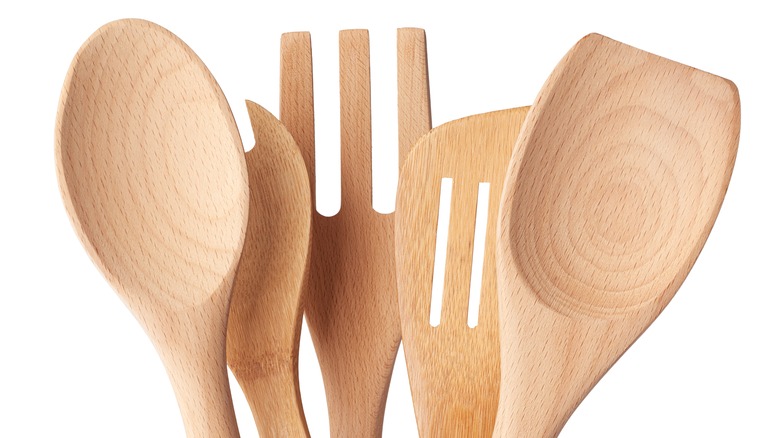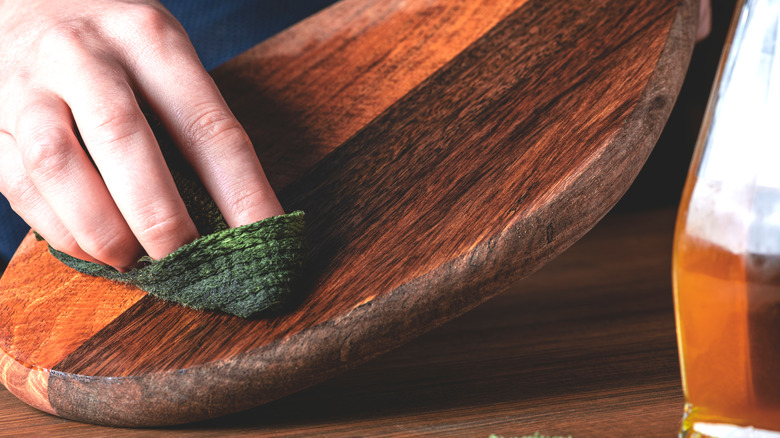Why You Really Do Need To Oil Wooden Utensils
Wood adds warmth and comfort to any home kitchen. Its steady, reassuring, familiar grain conjures images of gray-haired grandmothers and childhood tasty treats. Artful craftsmanship adds to the allure and appeal of wooden kitchen utensils. Wood also has a lasting and enduring quality that makes it the go-to choice for professional and home chefs alike. If these versatile and all-purpose utensils are properly cared for, they can last for years.
While wooden cooking utensils seem to be the superheroes of the kitchen, they do have one nemesis. Wood is prone to cracking. Because of its natural and porous nature, it can absorb moisture. If it absorbs too much, it will swell, causing it to eventually crack (per Martha Stewart). On the flip side, wood can crack if it dries out. Extreme heat, like from the dishwasher, can warp the wood. Luckily, there is a fix. Oiling wooden kitchen tools will ensure that they not only stay moisturized but develop a beautiful, time-worn patina over time, according to Food 52.
Not all oils will work
Obviously, you want to rub your wooden utensils with a food-grade oil. Unfortunately, that doesn't mean the olive or avocado oil you have in your pantry. These oils can go rancid, possibly souring the utensil, as The Kitchn explains. Instead, use what Food 52 calls "polymerizing oils." These oils, like linseed and walnut, slightly harden the wood as they dry. Masterclass suggests using mineral oil or beeswax.
To properly oil your wooden utensils and cutting boards, the first step is to make sure they are clean and completely dry (via The Kitchn). Then, use a clean, soft rag to rub the oil evenly into the wood. Let it dry overnight, and the next day simply use a fresh rag to buff out any remaining oil. The Manual suggests treating and maintaining your wooden kitchen tools monthly, but it truly depends on how often they are used. If your wooden utensils feel dry and look a little thirsty, don't wait! A simple oil rub could extend their life.

